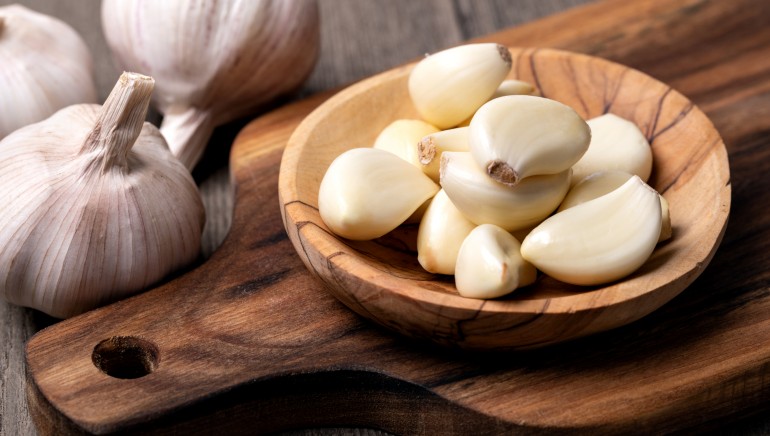
The monsoon season brings in relief from the scorching summer, but it can also affect our gut health in different ways. Since our gut health has a significant role to play in our overall health, it’s important to take care of what we eat during according to a specific season. Let us know about some gut-friendly foods for monsoon!
According to Shruti Keluskar, Executive Nutritionist, Cloudnine Group of Hospitals, Pune, our metabolism in monsoon. This causes a lot of problems such as bloating, abdominal pain, and constipation. So, eating right is important.
“There are various factors that influence the gut microbiome, including diet. Additionally, compared to summer, the wet season has lower gut enzyme activity. Hence, one needs to ensure to achieve a good balance between both diet and immunity,” adds Keluskar,
By including the following gut-friendly foods in your diet, you can keep your gut health at its best, suggests Keluskar.
Breaking down substances into simpler substances through the process of fermentation makes them a great source of probiotics. They have the ability to maintain the natural balance of gut bacteria.

Yogurt or curd: Both curd and yogurt are probiotic foods that contain bacteria that are good for your digestive system. A study revealed that microbiome diversity is increased and immunological responses are enhanced by a high-fermented food diet. The inclusion of these foods as snacking options during this monsoon is the best way to improve gut health. Some other newly found common foods are kimchi, kefir, kombucha etc.
Since probiotics act as good bacteria, thus when taken in the required quantity, they will benefit by taking control or reducing any digestion-related issues.
Eating seasonal fruits and vegetables in good portions on a daily basis will take care of the immune system. Fruits and vegetables provide numerous health benefits. They are loaded with a lot of nutrients, antioxidants, fiber, and a healthy microbiome.
Bananas and apples: Bananas and apples have high pectin content, a soluble fiber that normalizes bowel function, acting as a prebiotic and it has a calming impact on the digestive system. This indicates that it nourishes the beneficial bacteria in your stomach, known as the gut microbiota.
Also check: Is your gut leaky? Take this quiz to find out
Select Topics of your interest and let us customize your feed.
PERSONALISE NOW
Pomegranate: Pomegranates are high in antioxidants and polyphenols. They act as prebiotics. They significantly improve bacteria like Bifidobacterium and Lactobacillus and help in improving the overall health of our gut.
Berries: According to research, berries foster a diverse and healthy gut microbial ecosystem by providing food for beneficial gut bacteria. Cruciferous plants such as broccoli, cabbage and cauliflower have unique chemicals that gut bacteria can use. They contain an organic chemical substance that supports the maintenance of immune surveillance and gut flora.
Green peas: Fibre is abundant in peas, supporting digestive health and feeding the good gut bacteria that are essential to human health.
So, do keep in mind including plenty of fruits and vegetables will not just take care of your immunity but also help feed your good gut bacteria.
The gut microbiota is crucial for healthy digestion and can either contribute to or avoid disease. Whole grains are significant nutritional sources for the gut microbiota and support healthy gut flora. Whole wheat, millet, brown rice, oats, etc. are a few examples of gut-friendly foods that you can incorporate into your diet.
Polyphenols are compounds found in plant-based foods. They have antioxidant and anti-inflammatory properties. Polyphenols are consumed by the gut microbiome, which also creates healthy substances. By promoting the growth of good bacteria and preventing the growth of pathogens, polyphenols have an antimicrobial effect.

Flaxseeds: Both the soluble and insoluble fiber in flaxseed are fermented by the bacteria in your intestines to promote gut health and increase bowel regularity.
Herbal tea: A healthy stomach can be supported naturally by using herbs. The catechins and flavanols are the main classes. Drink a lot of herbal teas to help with digestion and immunity, such as chamomile tea, green tea, or even ginger lemon tea.
As we are all aware, a healthy immune system and healthy life require healthy digestion. Spices can be a great friend in the fight to improve gut health. They are loaded with multiple health benefits such they act as an antioxidant while also having anti-inflammatory, antibacterial, and anti-viral qualities.
Turmeric: The curcumin in turmeric stimulates the development of healthy gut flora while inhibiting the growth of harmful organisms.
Garlic: The healthy bacteria in your digestive system are fed by insulin, a sort of non-digestible carbohydrate or “functional fibre” that is naturally abundant in garlic.
Cinnamon: According to previous research, cinnamon inhibits the growth of “unfriendly” bacteria while supporting the ideal environment for “friendly” gut bacteria to grow.

Raw vegetables: Eat cooked or steamed vegetables rather than raw ones because the latter may contain germs and viruses that could worsen gut health by causing stomach illnesses.
Eating outside: With the change in season the kind of food cravings we get is totally understandable but what comes along with these cravings are a lot of problems like bloating, indigestion, and stomach ache.
Fried foods: Fried foods are heavy for our gut to digest. As the highly humid weather already tends to cause the digestion process to slow down munching on pakoras, samosas and French fries are going to be a burden. Instead, opt for healthy home-cooked options like wraps or warm soups.